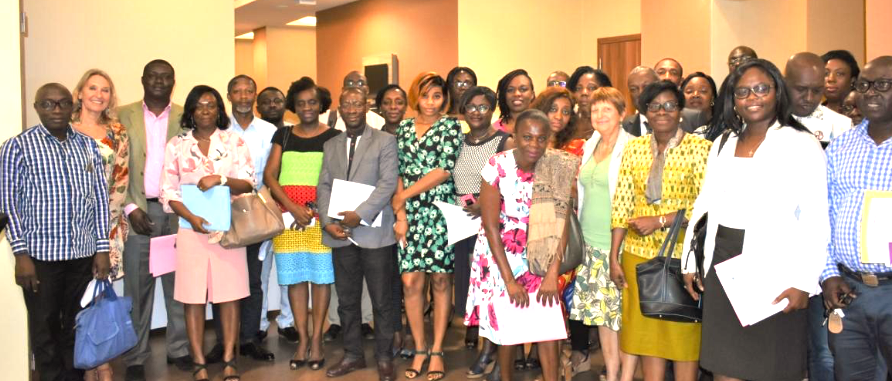Health professionals
For better management of sickle cell anemia, initial or continuing professional training is essential. In this context, DREPAVIE has set up training workshops for health professionals. These training courses are designed in collaboration with the local counterpart associations, learned societies of pediatricians, hematologists, general practitioners and training organizations for nurses and midwives. It is necessary to develop skills at all levels of the health pyramid.
These training courses are aimed in particular at general practitioners, health executives and nurses. The goal is to put in place procedures for optimal management of sickle cell disease. The training courses, implemented in different countries, are based on short or long programs, and take the form of theoretical and practical workshops. The different topics of sickle cell disease are discussed:
- Blood transfusion
- Pregnancy
- Management of complications in the child
- Vaccination
- Daily care
- Management of associated pathologies

Volunteers
Volunteers receive training on the missions of patient associations (after the World Health Organization, 1992):
- Individual, moral and psychological support
- Establishment of social, administrative, legal assistance, sometimes even going as far as providing financial assistance
- Informing members through publications and distribution of magazines, brochures, books and other videograms
- Access to material assistance: supply, loans and rental of various materials
- Information for healthcare and healthcare professionals
- Counterbalance role in relation to health professionals, to the existing health system in order to promote participation in decision-making by patients concerning their health
- Information of the general public in order to improve the means of pressure exerted by the association but also in order to make known and recognize the public health problem and to promote fundraising
- Development of relations with administrations and politicians, in order to challenge those in charge, to improve the social, health and financial status of members, to recognize needs, to seek means, to organize a form of social pressure
Volunteers also receive training on the skills a volunteer needs to complete these assignments:
- communication skills
- Psychosocial skills
- Pedagogical skills
- Legal skills
- Intercultural skills
- Accounting skills
- Skills for action with institutions
- Scientific knowledge
